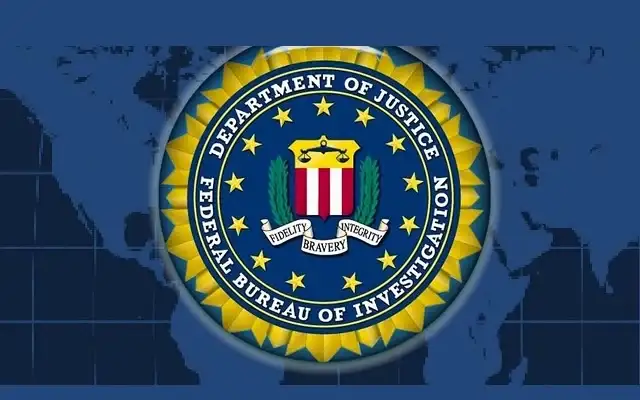FBI Arrests Harpreet Singh, Suspected Babbar Khalsa Operative, in Connection with Terror Attacks in Punjab

In a significant move against international terrorism, the Federal Bureau of Investigation (FBI), working with U.S. Immigration and Customs Enforcement’s Enforcement and Removal Operations (ERO), arrested Harpreet Singh. He is an alleged operative of the pro-Khalistan militant group Babbar Khalsa International (BKI), which is tied to several terror attacks in Punjab, India. Authorities apprehended Singh in Sacramento, California, after an extensive investigation into his suspected involvement in extremist activities linked to Babbar Khalsa.
Who Is Harpreet Singh?
Harpreet Singh, a prominent member of Babbar Khalsa, has been under surveillance by both Indian and international security agencies for years. Authorities suspect him of orchestrating and supporting terror attacks in Punjab. Singh is believed to have played a key role in recruiting new members, providing financial support, and arranging logistical assistance for the group’s violent operations. These attacks, carried out under the Babbar Khalsa banner, have caused significant casualties and left lasting damage. His arrest marks a critical development in efforts to address extremist groups operating internationally.
The Rise of Babbar Khalsa International
Babbar Khalsa International (BKI) is a militant organization that rose from the Sikh separatist movement. The group formed in the 1980s with the objective of establishing an independent Sikh state, Khalistan, through violent means. In the 1980s and 1990s, BKI carried out multiple high-profile attacks, including bombings and assassinations. Despite setbacks, the group remains active and continues to recruit members, especially within Sikh diaspora communities around the world, particularly in the U.S., Canada, and the U.K. Authorities have banned Babbar Khalsa under Indian law, but the group’s influence persists.
Singh’s Arrest: A Step Towards Combating Transnational Terrorism
The FBI arrested Harpreet Singh in Sacramento after months of surveillance and intelligence-sharing between U.S. and Indian agencies. Authorities suspect Singh of coordinating with other Babbar Khalsa operatives to finance and support terror activities in both the U.S. and India.
An FBI official confirmed the significance of the arrest: “We are committed to preventing individuals involved in terrorism from finding safe havens in the U.S. This arrest sends a strong message that we will continue working with our international partners to bring terrorists to justice.”
Singh’s arrest forms part of a broader initiative to target individuals linked to terrorist groups and highlights the ongoing efforts to disrupt cross-border terror networks.
India’s Reaction to the Arrest
Indian officials have strongly welcomed the arrest of Harpreet Singh, seeing it as a significant step in neutralizing Babbar Khalsa’s activities on foreign soil. India has long raised concerns about the spread of extremist ideologies among the Sikh diaspora, and Singh’s arrest demonstrates the success of international cooperation in addressing this challenge.
An Indian official remarked, “The arrest of Harpreet Singh illustrates the growing cooperation between U.S. and Indian law enforcement agencies. It sends a clear message that those involved in terrorism will face justice, no matter where they operate.”
While Singh’s arrest is a victory, experts caution that Babbar Khalsa remains a persistent threat. The group’s influence, especially among overseas communities, continues to be a significant concern for India’s national security.
How Singh’s Arrest Could Impact Babbar Khalsa’s Network
Experts believe that Harpreet Singh’s arrest could unravel key parts of Babbar Khalsa’s international operations. As a known operative, Singh’s detention might expose the financial networks and operational cells that support the group. Investigators expect that his arrest will lead to more discoveries about other operatives and their roles in planning and executing terrorist activities.
Indian authorities view this as an opportunity to disrupt Babbar Khalsa’s global network. Singh’s arrest could also push other operatives into the spotlight, accelerating efforts to dismantle the group.
Strengthening Indo-U.S. Counterterrorism Relations
The arrest of Harpreet Singh underscores the growing strength of counterterrorism cooperation between India and the United States. Both countries have increasingly worked together to combat terrorism, particularly since the aftermath of the 9/11 attacks. Their partnership has proven vital in addressing the global threat of extremist organizations. Singh’s arrest serves as a symbol of this strengthened collaboration.
India has long called for greater assistance from Western nations in targeting extremists. Although some legal challenges complicate direct action, both India and the U.S. remain committed to holding individuals accountable for terror-related activities.
The Path Forward
As authorities continue investigating, they expect to uncover more details about Singh’s role within Babbar Khalsa. The arrest could provide valuable insights into the group’s operations, including how it funds and recruits new members. Security experts predict that Singh’s detention may open new doors in the ongoing fight against terrorism.
For now, Harpreet Singh’s arrest stands as a significant victory for counterterrorism efforts. It highlights the importance of international cooperation in preventing the spread of extremism and ensuring that those responsible for terrorism are brought to justice. The investigation will likely continue, with more developments expected in the coming months.






